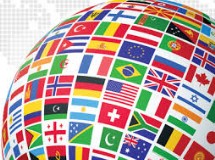#1 There is such profession as "translator" Translators are those who ...
yes, translate.
Books for kids and contracts, poetry and program interfaces, politicians' speeches and love stories, scientific articles, sermons, Web content, as well as much, much more completely different texts.
That is why there is no such thing as "just translator" anymore -- almost all translators work in their own niches, translating types of texts they are familiar with in the fields they have at least basic knowledge.
Such an approach helps translators ensure the highest quality and save time, both clients' and their own.
That is why a translator, who works with texts on IT or medicine, will refuse to take, say, an article on theoretical physics or a book of nursery rhymes (let's presume he has such an option).
#2 The only thing a good translator needs is to know some foreign language well.
Knowing a language won't automatically make anybody a good translator -- just like being able to write won't make any person a good writer.
Nobody says that knowing a foreign language is not important.
It is.
But there are other things which we usually take for granted.
Just one example: it is extremely important for a translator to know his NATIVE language well.
Puzzled? You probably assumed that if some language is somebody's mother tongue, he knows it well.
What about people who, to put it mildly, have poor vocabulary and lack speaking or writing skills? People who can't express their thoughts well enough in their native language will make mediocre translators.
Any professional translator is expected to be a good writer.
If he isn't...
you probably have seen texts and guessed at once that they had been translated -- because of their "wooden style".
Difficult-to-read manuals, Web pages, where visitors don't stay long, books turned into something boring and tiresome -- they probably were OK before such a "translation".
#3 ALL good interpreters and translators can do each other's work WELL.
Unlike translators, interpreters deal with oral speech.
In fact, translating and interpreting require completely different skills.
Of course, there are people who can combine all these qualities and do both jobs equally well, but don't expect brilliance in both translating and interpreting from all of them.
An interpreter should be able to make decisions quickly, often in extreme conditions.
Sharp mind, excellent memory, resourcefulness, and stamina -- that's what any interpreter needs every day.
No dictionaries at hand.
No time to think how to express the thought in the best possible way.
Only memory to rely for.
The only aid available is maybe a couple of quick notes -- to remember some particularly long utterance.
Simultaneous interpreters' work in even more severe: they are "processing" the constant flow of speech.
During a work session a simultaneous interpreter, hearing some word-combination or sentence through headphones in one language has to give it out in the other at once -- while listening and memorizing other sentences piling up.
A couple of seconds' delay is unaffordable luxury.
To forget something means to fail.
Nobody can work like this for a long time, so simultaneous interpreters as a rule work in pairs, for about 20 minutes each.
For a translator making quick decisions is not so important.
A shy bookworm with a stage fright can, in spite of all that, make an excellent translator, but he will never be a good interpreter.
So what? Not every interpreter can become a good translator, either.
Accuracy, exactness, huge vocabulary -- that's what a translator needs much more than resilience and quickness.
Plus the sense of style, which an interpreter may lack.
Translators are usually more time-rich, and they can afford -- and, in fact, must -- bring the translated text to perfection.
Tight schedule doesn't justify poor work: inaccuracy, sloppy sentences, useless repetitions, not to mention mistakes and typos.
Here are only three points of view about translators, which are most common, but incorrect.
There are more; some of them are completely wrong, others are just questionable.
It's impossible to describe them all in one article, that is why the article is...
to be continued...
yes, translate.
Books for kids and contracts, poetry and program interfaces, politicians' speeches and love stories, scientific articles, sermons, Web content, as well as much, much more completely different texts.
That is why there is no such thing as "just translator" anymore -- almost all translators work in their own niches, translating types of texts they are familiar with in the fields they have at least basic knowledge.
Such an approach helps translators ensure the highest quality and save time, both clients' and their own.
That is why a translator, who works with texts on IT or medicine, will refuse to take, say, an article on theoretical physics or a book of nursery rhymes (let's presume he has such an option).
#2 The only thing a good translator needs is to know some foreign language well.
Knowing a language won't automatically make anybody a good translator -- just like being able to write won't make any person a good writer.
Nobody says that knowing a foreign language is not important.
It is.
But there are other things which we usually take for granted.
Just one example: it is extremely important for a translator to know his NATIVE language well.
Puzzled? You probably assumed that if some language is somebody's mother tongue, he knows it well.
What about people who, to put it mildly, have poor vocabulary and lack speaking or writing skills? People who can't express their thoughts well enough in their native language will make mediocre translators.
Any professional translator is expected to be a good writer.
If he isn't...
you probably have seen texts and guessed at once that they had been translated -- because of their "wooden style".
Difficult-to-read manuals, Web pages, where visitors don't stay long, books turned into something boring and tiresome -- they probably were OK before such a "translation".
#3 ALL good interpreters and translators can do each other's work WELL.
Unlike translators, interpreters deal with oral speech.
In fact, translating and interpreting require completely different skills.
Of course, there are people who can combine all these qualities and do both jobs equally well, but don't expect brilliance in both translating and interpreting from all of them.
An interpreter should be able to make decisions quickly, often in extreme conditions.
Sharp mind, excellent memory, resourcefulness, and stamina -- that's what any interpreter needs every day.
No dictionaries at hand.
No time to think how to express the thought in the best possible way.
Only memory to rely for.
The only aid available is maybe a couple of quick notes -- to remember some particularly long utterance.
Simultaneous interpreters' work in even more severe: they are "processing" the constant flow of speech.
During a work session a simultaneous interpreter, hearing some word-combination or sentence through headphones in one language has to give it out in the other at once -- while listening and memorizing other sentences piling up.
A couple of seconds' delay is unaffordable luxury.
To forget something means to fail.
Nobody can work like this for a long time, so simultaneous interpreters as a rule work in pairs, for about 20 minutes each.
For a translator making quick decisions is not so important.
A shy bookworm with a stage fright can, in spite of all that, make an excellent translator, but he will never be a good interpreter.
So what? Not every interpreter can become a good translator, either.
Accuracy, exactness, huge vocabulary -- that's what a translator needs much more than resilience and quickness.
Plus the sense of style, which an interpreter may lack.
Translators are usually more time-rich, and they can afford -- and, in fact, must -- bring the translated text to perfection.
Tight schedule doesn't justify poor work: inaccuracy, sloppy sentences, useless repetitions, not to mention mistakes and typos.
Here are only three points of view about translators, which are most common, but incorrect.
There are more; some of them are completely wrong, others are just questionable.
It's impossible to describe them all in one article, that is why the article is...
to be continued...
SHARE





































